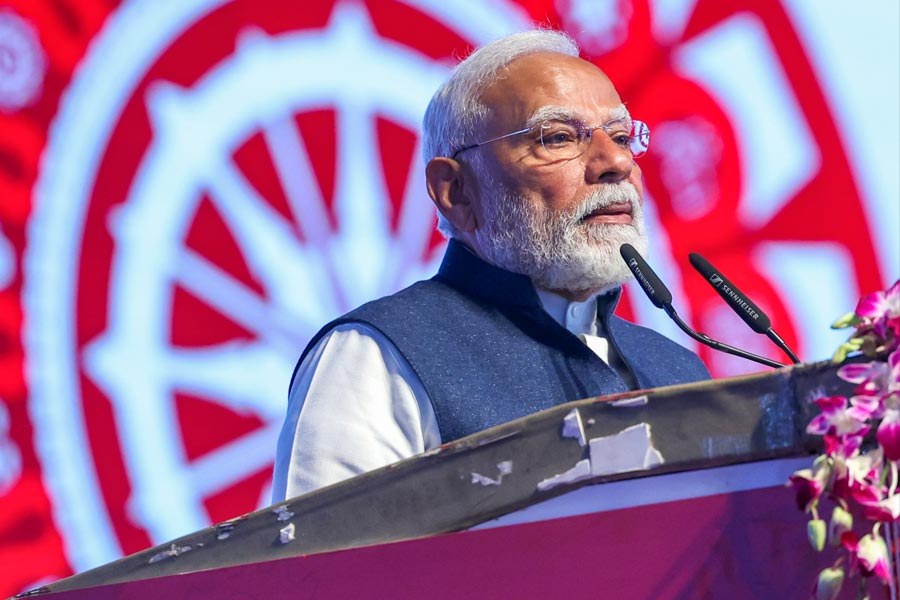The government has decided to let lapse a $23 billion programme to incentivise domestic manufacturing, just four years after it launched the effort to woo firms away from China, according to four government officials.
The scheme will not be expanded beyond the 14 pilot sectors and production deadlines will not be extended despite requests from some participating firms, two of the officials said.
Some 750 companies, including Apple supplier Foxconn and Reliance Industries, signed up to the Production-Linked Initiative scheme, public records show.
Firms were promised cash payouts if they met individual production targets and deadlines. The hope was to raise the share of manufacturing in the economy to 25 per cent by 2025.
Instead, many firms that participated in the programme failed to kickstart production, while others that met manufacturing targets found India slow to pay out subsidies, according to government documents and correspondence seen by Reuters.
As of October 2024, participating firms had produced $151.93 billion worth of goods under the programme, or 37 per cent of the target that Delhi had set, according to an undated analysis of the programme compiled by the commerce ministry.
India had issued just $1.73 billion in incentives — or under 8 per cent of the allocated funds, the document said.
Modi’s office and the commerce ministry, which oversees the programme, did not respond to requests for comment. Since the plan’s introduction, manufacturing’s share of the economy has decreased from 15.4 per cent to 14.3 per cent.
Foxconn, which now employs thousands of contract workers in India, and Reliance didn’t return requests for comment.
Two of the government officials told Reuters the end of the programme did not mean Delhi had abandoned its manufacturing ambitions and that alternatives were being planned.
The government last year defended the programme’s impact, particularly in pharmaceuticals and mobile-phone manufacturing, which have seen explosive growth.
Some 94 per cent of the nearly $620 million in incentives disbursed between April and October 2024 were directed to those two sectors.
In some instances, some food-sector companies that applied for subsidies weren’t issued them due to factors such as “non compliance of investment threshold” and companies “not achieving stipulated minimum growth”, according to the analysis. The document did not provide specifics, though it found production in the sector had exceeded targets. Reuters could not determine which companies the analysis referred to.
But Delhi had previously acknowledged problems and agreed to extend some deadlines and increase payment frequency after complaints from PLI participants.
One of the Indian officials, who spoke on condition of anonymity to discuss confidential matters, said that excessive red tape and bureaucratic caution continued to stymie the scheme’s effectiveness.











